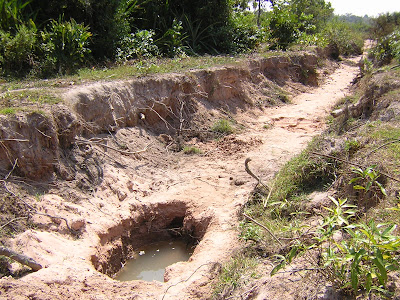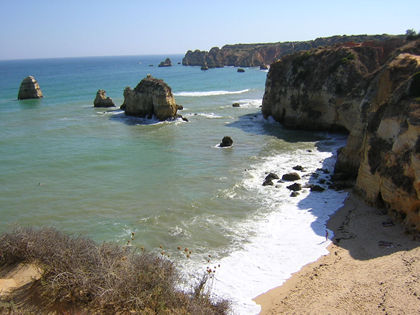Three Things to Survive
As the growth of globalization now reaches villagers in some of the most remote areas, this saying has mutated to reflect the changes of time, causing an alteration in two of the three aforementioned necessities. The motorbike has replaced the cow, and the TV has replaced water (or at least the need for clean water, anyway).

While the motorbike switch makes sense, the fact that TV has replaced the desire for clean water shouldn’t baffle one either. Rather it should illustrate the priorities of the villagers.

What would you do with that $100 (and had no other options) - Would you use that money to buy a TV, or buy a water well?
These are the decisions that villages are forced to make on a regular basis, and often villagers chose the TV. Even in remote villages with no electricity, villagers watch their favorite soap operas with the help of used car batteries that are jimmy rigged to the appliance’s cord. To a certain extent, it makes sense. It would be damn boring living in the countryside. While it’s great to go camping for a week, I don’t know about having to do it all the time.
It’s true that some villagers do not understand all the principles of hygiene, sanitation, and health standards so education is a factor contributing to choice of purchasing a TV over the water well. Yet, villagers need a conspicuous and direct cause and effect relationship. If they drink from the pit 10 times and don’t get sick, how can you tell them that when they are sick, it is from the dirty water?
Nevertheless, all villagers would love to have a water well that gives them clean water. One reason is that it tastes better. Another is the water looks cleaner when it comes from a well. There is a belief that if you drink brown water from a pit, your skin will become darker. But water from a well is clearer, and thus your skin will become whiter. Seems logical, yeah?
So while many can’t save up enough money to buy a well, there are many villagers who do have the money, but choose to spend it on other things, like TV’s and motorbikes. Unfortunately health does not top villagers’ priorities until they get sick. So as globalization brings wonderful new technologies to even the most remote corners of the globe, villagers who make about $200 per year now face increasing desires that challenge their ubiquitous notions of what is needed.
~ J-Dub


0 Comments:
Post a Comment
Subscribe to Post Comments [Atom]
<< Home